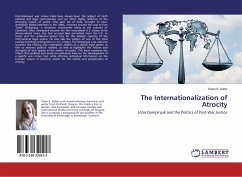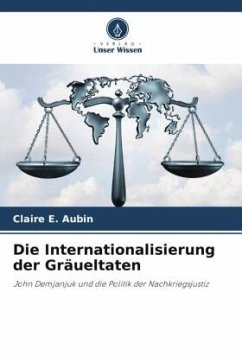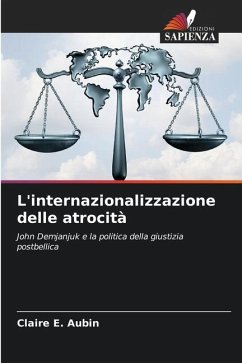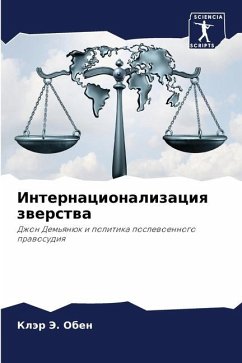
The Internationalization of Atrocity
John Demjanjuk and the Politics of Post-War Justice
Versandkostenfrei!
Versandfertig in 6-10 Tagen
24,99 €
inkl. MwSt.

PAYBACK Punkte
12 °P sammeln!
Post-Holocaust war crimes trials have always been the subject of both political and legal controversies, and are often highly reflective of the changing nature of justice. One such set of trials, brought to near-immediate global attention in the 1980s, centered around the case of Ivan "John" Demjanjuk, a Ukrainian autoworker living in the suburbs of Cleveland, Ohio. Demjanjuk became the first naturalized U.S. citizen to be denaturalized twice, the first accused Nazi extradited from the U.S. to Israel, and the accidental poster boy for the didactic capacity of the international legal system. He...
Post-Holocaust war crimes trials have always been the subject of both political and legal controversies, and are often highly reflective of the changing nature of justice. One such set of trials, brought to near-immediate global attention in the 1980s, centered around the case of Ivan "John" Demjanjuk, a Ukrainian autoworker living in the suburbs of Cleveland, Ohio. Demjanjuk became the first naturalized U.S. citizen to be denaturalized twice, the first accused Nazi extradited from the U.S. to Israel, and the accidental poster boy for the didactic capacity of the international legal system. He was also the subject of one of the most publicly botched investigations in U.S. history. The Demjanjuk case calls into question the efficacy and redemptive abilities of a global legal system so tied to external political realities, as well as highlights the failures and strengths of that system as the arbiter of justice. This book examines the effects that political and social circumstanceshave on the development of a specific war crimes trial, while offering contextual information on the broader nature of post-war justice for the victims and perpetrators of atrocity.












